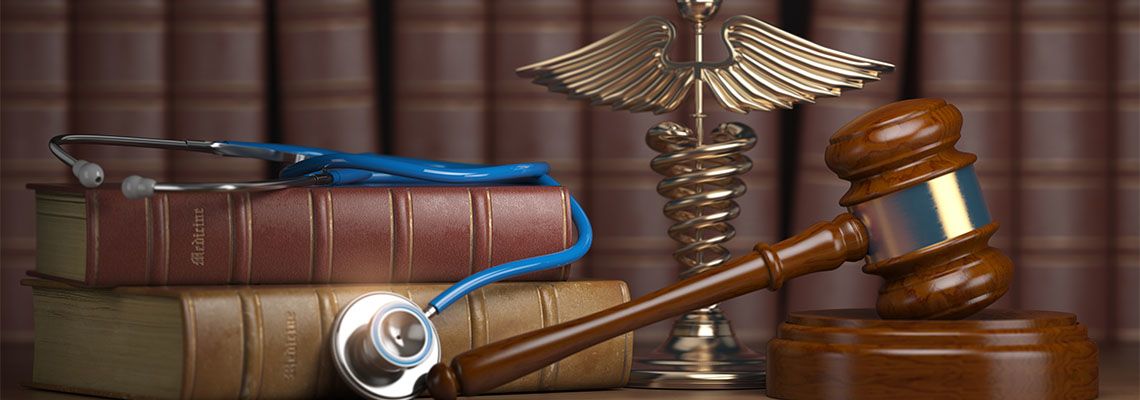Three Common Causes for Medical Malpractice Claims

In Kentucky, medical professionals are required to provide a certain level of care consistent with the patient's needs and carry out their job efficiently and safely. When the health care professional or facility causes an injury or complication to a patient through their negligent acts or omission, the victim may be entitled to seek compensation by filing a medical malpractice claim. An experienced Kentucky personal injury attorney can enlighten you about some common causes of medical malpractice claims.
Slechter Law Firm, PLLC is committed to offering strong representation and skilled advocacy to clients in their medical malpractice cases. Mr. Slechter and Mrs. Slechter can investigate all of the facts of your unique situation, help file your medical malpractice claims, and hold the negligent medical professional or facility liable for your injuries. The firm proudly serves clients across Louisville, Kentucky, and surrounding areas throughout the state, including Lexington.
Understanding Medical Malpractice
Under Kentucky law, medical malpractice occurs when the negligent action or omission of a health care expert (doctor, nurse, surgeon, therapist, etc.) or medical facility (hospital, clinic, etc.) results in an injury, medical complication, incapacitation, or death of a patient.
Such medical negligence often occurs as a result of the medical professional's failure to provide adequate care or treatment to the patient or act appropriately when required.
The statute of limitations for medical malpractice claims in Kentucky is one year after the medical malpractice act or injury occurred or from the date the plaintiff discovered the injuries.
Common Causes for Medical Malpractice Claims
Some common causes and reasons for medical malpractice claims include:
Diagnosis Errors
Diagnosis remains the bedrock of providing medical care to patients. However, diagnosis errors occur when the health care professional fails to establish an accurate and timely explanation of the patient's health issue. A diagnosis error may include any of the following:
Misdiagnosis – The physician provided the wrong diagnosis or missed the diagnosis completely.
Failure to Diagnose – The physician completely failed to diagnose the patient.
Delayed Diagnosis – The physician failed to diagnose the patient's health condition within a reasonable amount of time.
Failure to Properly Treat a Diagnosis
As mentioned earlier, medical professionals are required to conform to the accepted standard of care for their profession. Failing to diagnose and properly treat a person's health problem or illness can have serious repercussions. If the patient suffers health complications or deterioration as a result, they may have a medical malpractice claim.
Surgical Errors
Surgical errors are mistakes that occur while performing surgeries or surgical procedures. However, not every surgical error constitutes medical malpractice. If the surgeon performing the surgery fails to follow the appropriate standard of care, and this causes injury or harm to the patient, they may be able to file a medical malpractice claim. For instance:
The surgeon cut a nerve during the surgery.
The surgeon left an instrument or sponge inside the patient's body.
The surgeon cut the wrong location.
The surgeon made an anesthesia error.
The surgeon operated on the wrong body part.
The surgeon failed to take a complete history of the patient prior to the surgical procedure.
If you or a loved one has been the victim of medical malpractice or negligence, you need to reach out to a seasoned personal injury attorney immediately. Your lawyer can investigate the facts of your case, help identify the liable party, and determine the best way to proceed with your medical malpractice claims.
Basic Elements of a Claim
To establish a medical malpractice claim in Kentucky, the claimant must prove negligence by showing the following elements:
There was a physician-patient relationship.
The physician or medical professional was negligent.
The doctor deviated from the accepted medical standard of care.
The doctor's negligence or deviation caused your injury or medical complication.
You suffered actual harm, injury, or damages such as physical pain, additional medical bills, reduced productivity, mental anguish, or missed time at work.
A seasoned attorney can seek to identify the responsible party, help prove negligence, and pursue your rightful financial compensation.
Possible Damages Available
The following damages may be recovered by a medical malpractice claim in Kentucky:
Medical expenses, including payment of past, ongoing, and future medical treatments
Reimbursement of lost wages and benefits
In-home care expenses
Loss of future earning capacity
Medical accessories
Compensation for reduced earning capacity
Ambulance costs
Loss of companionship or consortium
Loss of enjoyment of life
Physical pain and suffering
Mental anguish
Wrongful death damages, where applicable
In addition, there is no cap for medical malpractice damages in Kentucky. An experienced attorney can fight for your legal rights and help you recover the maximum possible compensation for your injuries.
Trusted Legal Guidance
Contact Slechter Law Firm, PLLC today to schedule a simple case evaluation with experienced medical malpractice lawyers. Mr. Slechter and Mrs. Slechter can offer you the personalized guidance and zealous representation you need in your medical malpractice claims. The firm proudly serves clients across Louisville, Lexington, and surrounding areas throughout the state of Kentucky.

